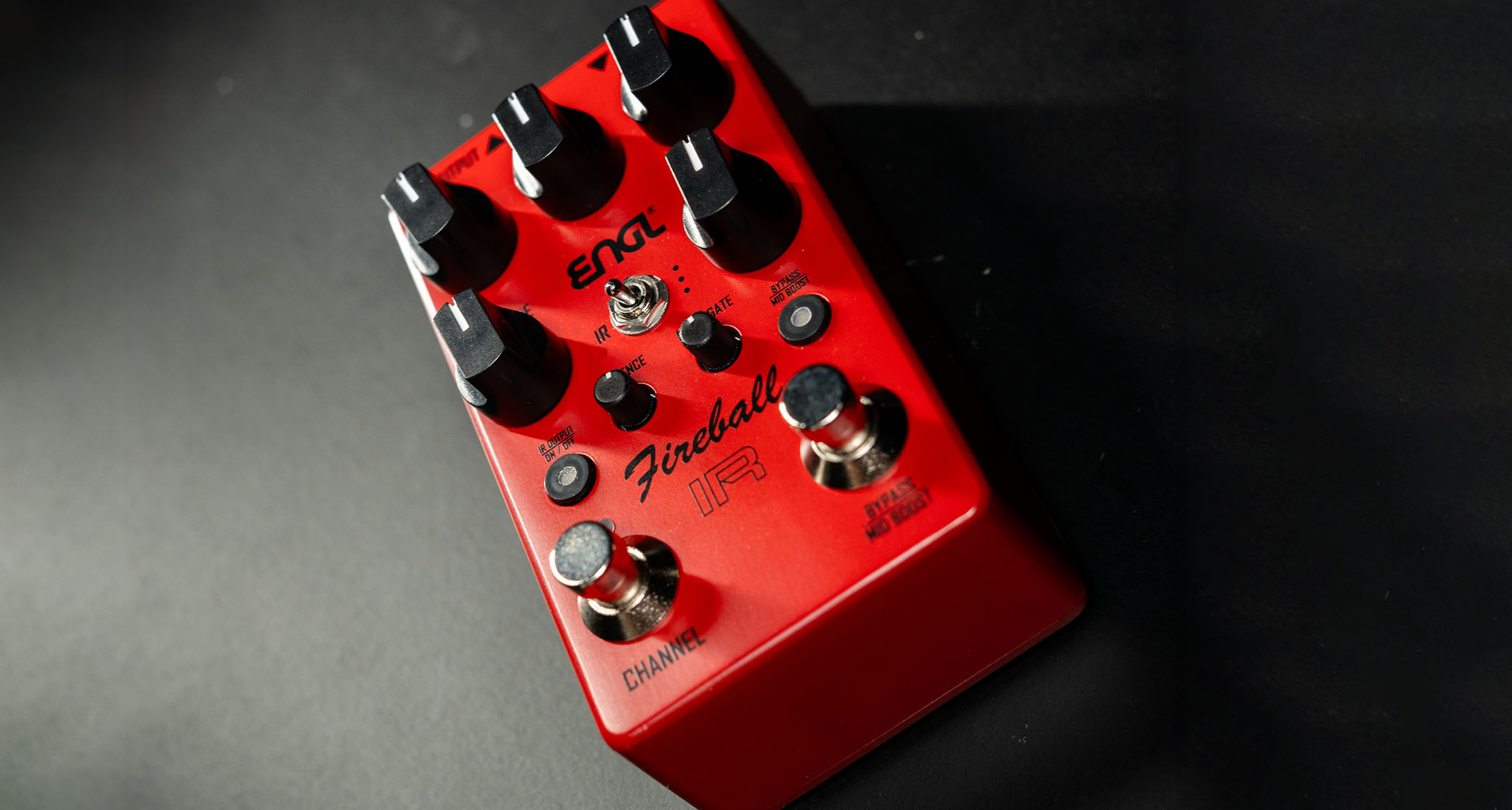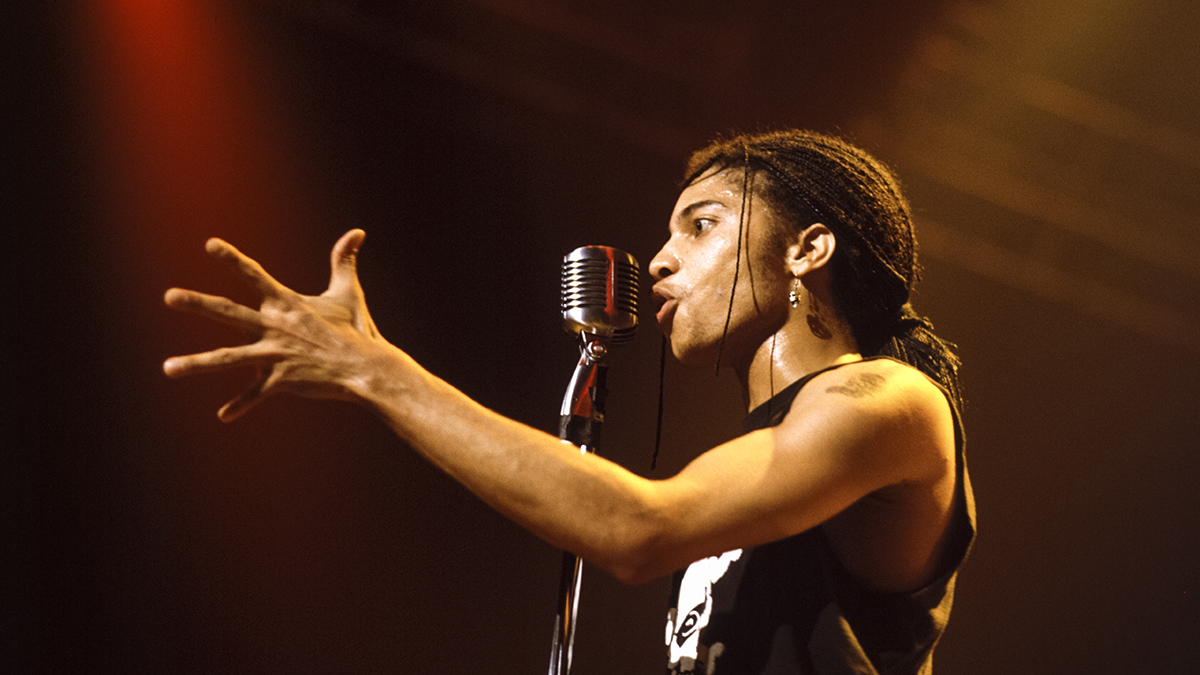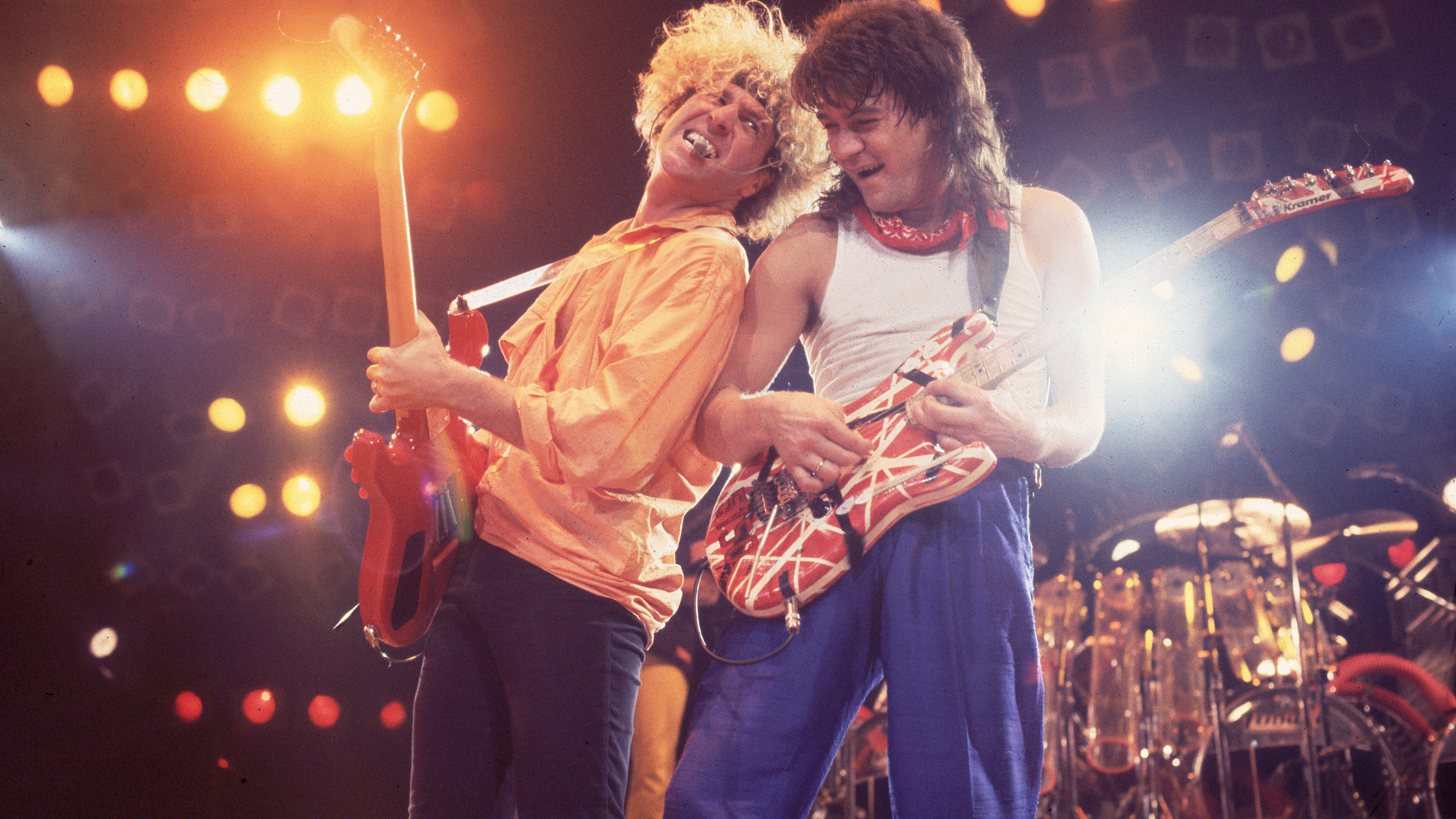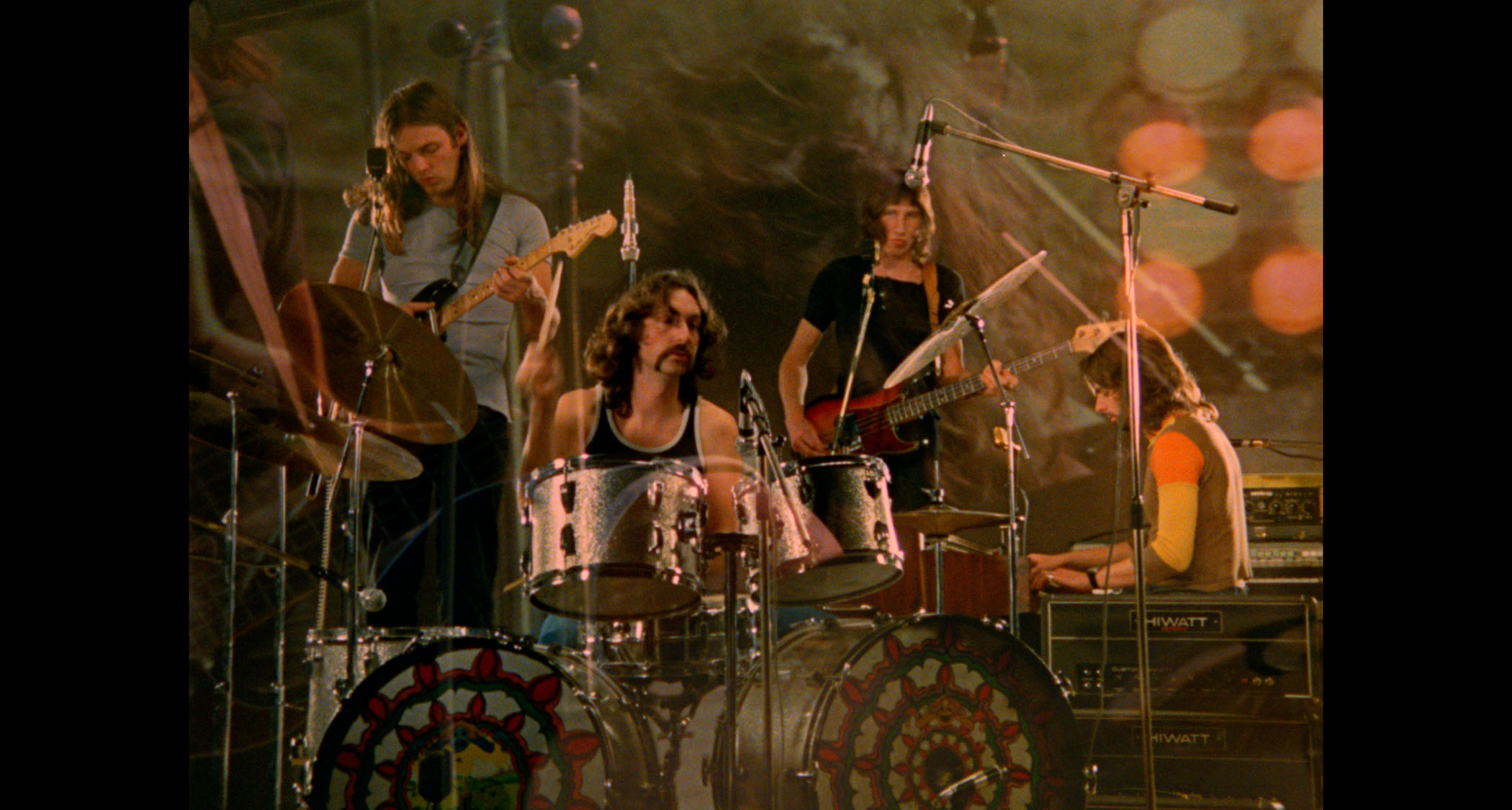

Zoltan Bathory on stage with Five Finger Death Punch, Irvine CA, September 2011. © KEVIN ESTRADA ./Retna Ltd./Corbis
"Everything is the band is very smooth running," says Zoltan Bathory, Five Finger Death Punch's rhythm guitarist and all-around main man. "The changes that have happened over the years were all based on personalities; it had nothing to do with music. But now we're in a good place. We don't have rock stars in the group. Everybody is chilled-out and very cool."
'Chilled-out' may describe the general state of the band, but their music is anything but. On the group's third album, American Capitalist, the hard-hitting riffs and over-the-top solos have been ratcheted up to a frightening degree.
Released last October, the record looks like it could easily top the gold performance of the quintet's first two offerings (2007's Way Of The Fist and War Is The Answer from 2009), putting Five Finger Death Punch (which also includes singer Ivan Moody, lead guitarist Jason Hook, bassist Chris Kael and drummer Jeremy Spencer) near the top of the heavy metal contingent.
We sat down with Zoltan Bathory to talk about the new album, how he approaches rhythm playing and what plans he has for a update of his signature BC Rich guitar. In addition, we asked Bathory, an businessman, what advice he has for young players hoping to form the next big-time metal machine.
The new record is called American Capitalist, yet on the CD cover you have logos of all the companies you endorse. What are you saying there?
"With most rock bands, they feel like they have to attack the establishment. It's such a typical approach: 'Stick it to The Man,' and 'Down with the system,' and on and on. But that's kind of nonsense, you know what I mean?
Get the MusicRadar Newsletter
Want all the hottest music and gear news, reviews, deals, features and more, direct to your inbox? Sign up here.
"Take what you do, for example: Let's say you write for a magazine, and then one day you become the editor, the top guy. How would you feel if everybody who used to read you said, 'Oh, fuck this guy. He's The Man.' Suddenly, you're being attacked for being good at your craft and achieving success. And that's what happens with bands, too.
"Obviously, there's a downfall to our economy, and people are angry. Plus, you've got white-collar crime, corporate bailouts - and people have a right to be mad about it. But for the most part, companies are just people striving for success. As for ourselves, we've been attacked for being successful. We've had people say, 'Fuck these guys. They're sell-outs!' Hey - we're just trying to do well.
"The companies on the record cover, those people are our friends; we work with them. To me, the cover is all about survival. And you know, only the strong survive. It's survival in an urban setting."
Speaking of survival, you guys are one of the few metal bands who are actually selling CDs nowadays. Any theories there?
"We have a tremendous fan base - very dedicated and hardcore. They stick with us because we really do say something. We have ideas and ideals, and we're not afraid to share them. When you deliver a message, people are either going to go 'yea' or 'nay.' But that's better than being an average band that doesn't risk being polarizing.
"Of course, you do have to make music in a traditional sense. You have to write a song. No matter what, it's all about the song. If you can write a song that connects musically and lyrically - and you're not singing about slaying dragons - then people will respond to you."
However, there's got to be more to it than writing good songs. Plenty of bands have good songs, but not all of them are selling records.
"It's a combination of things: the music, the band, our ideas, the whole package. It all has to be there. And I think people can relate to us, too. They know that we're just like them. We're blue-collar guys, and we built this band up. And we don't take anything for granted. You know, if you forget about your fans, they'll forget about you."
What have you learned about the music business that's surprised you?
"When you're growing up and wanting to be in a rock band, you think that if you write great music and put it out there, suddenly you'll be playing big places and everything will be great. You don't expect to have people lash out at you for playing your music. That was a surprise to me.
"We became successful pretty quickly, and I discovered that I had to develop a thick skin so I wouldn't be bothered by criticism. It's like, 'Jesus Christ, I'm just playing music, man! Why do I have these fucking idiots wishing that I should die?' They should go and write their own music then. You know what I mean?"
Aside from having a thick skin, what advice would you have for young musicians who want to do what you do?
"I would tell somebody not to expect anybody to do the work for you. People think that they can just record a couple of songs, send them to the labels, and then they'll get a deal for big money and everything will be great. Forget it - that's never going to happen.
"Anything and everything you can do yourself, do it yourself. The industry only wants to back winners. If a label can look at you and go, 'Hey, this guy is doing pretty well on his own,' then you might get your chance. But nobody is going to pick you up just because you're talented. There's so many talented people out there. So do everything. Have a great worth ethic. Drive the ship as far as you can."

Bathory on stage with 5FDP singer Ivan Moody. © KEVIN ESTRADA ./Retna Ltd./Corbis
Let's get into your music. You're pretty much a rhythm guitarist. In metal circles, it's the lead player who gets all the glory.
"That's true. But I love the sound of a big, powerful rhythm guitar. When I discovered the baritone guitar years ago, it blew me away. Before then, I was just like any other guitarist who was into Yngwie Malmsteen and guys like that. But I found that the baritone guitar was a challenge. My string gauges were like .13 to .66 - that's like pulling cables, you know?"
Why did you move to such heavy gauge strings - to suit the baritone guitar?
"Yes. They already heavier gauge strings, but to keep the tuning right, because of the longer neck, you really have to go heavy. It's easy for me now to play a string like a .66, but you ought to see other people. It's hysterical. They pick up my guitar and go, 'Jesus Christ, man! How you play this thing?' [laughs] But I'm used to it now. The heavy strings are like nothing to me.
"But I knew I had to find the right counterpart, a guitar player who could play all the great leads that I love, and we'd just share the job. I don't need the spotlight, I don't need to be louder than anybody else - it's all about the final product. And why would I compete with Jason anyway? The guy is crazy good!' [laughs]
American Capitalist is the first album you've made with the new lineup. What are you doing to ensure band stability?
"Human relations require skill. One of the most important things you have to learn is how to keep things in perspective. Arguing about one little section in one song isn't a good reason to break up the whole band. Sure, people are passionate about the music, and everybody tries to lobby for their parts, but you have to look at the big picture. Learn what's really important. Most things can be worked out if you really try."
This is the second record Kevin Churko has produced for the band. What does he bring to your music?
"He's very detail oriented, possibly more than any of us - and we're all crazed for every little detail. So he finds stuff in the recordings that nobody else can. At the same time, he's very chilled and cool; he's got a great demeanor. He delivers his opinions in a good way, so you can't really get upset about anything. As a producer, he doesn't try to change us, he just gets the best recordings and performances possible."
Are there any songs on the new record where you are playing leads?
"Mmm… All the flashy kind of leads are Jason. What I play aren't really leads, they're melodic parts. They're not flashy. What I do is, whenever there's a chugging rhythm, I kind of hide a little melodic part. You can call them leads, but they're more like supporting melodies. They're subtle."
You've had a signature model guitar with BC Rich for several years. Any plans for a new edition?
"We're talking about it, yes. We're working on different pickups. What I'm trying to do is split the magnet - I'm doing this with Seymour Duncan. For my sound, my rhythm parts are very fast and staccato. I just shred on the lower strings. But I want every note to be heard.
"The higher your gain, the more noise you accumulate. However, if you don't drive the gain and you go for the higher notes, it just dies - you have no sustain. I'm trying to find the right balance. I want the clarity of the rhythms, but anything on the higher notes has to ring out and have sustain."
Last question, and it's a biggie: You're a practitioner of martial arts. Have you ever actually used a 'Five Finger Death Punch'?
[laughs] "Let me put it this way: Sometimes I've been in situations where I should. I'm more of a grappler, though - Judo, Jujitsu, you know what I mean? Hitting somebody is the last resort, and I have to watch my hands anyway. I'll leave hitting things up to Jackie Chan."
Joe is a freelance journalist who has, over the past few decades, interviewed hundreds of guitarists for Guitar World, Guitar Player, MusicRadar and Classic Rock. He is also a former editor of Guitar World, contributing writer for Guitar Aficionado and VP of A&R for Island Records. He’s an enthusiastic guitarist, but he’s nowhere near the likes of the people he interviews. Surprisingly, his skills are more suited to the drums. If you need a drummer for your Beatles tribute band, look him up.










